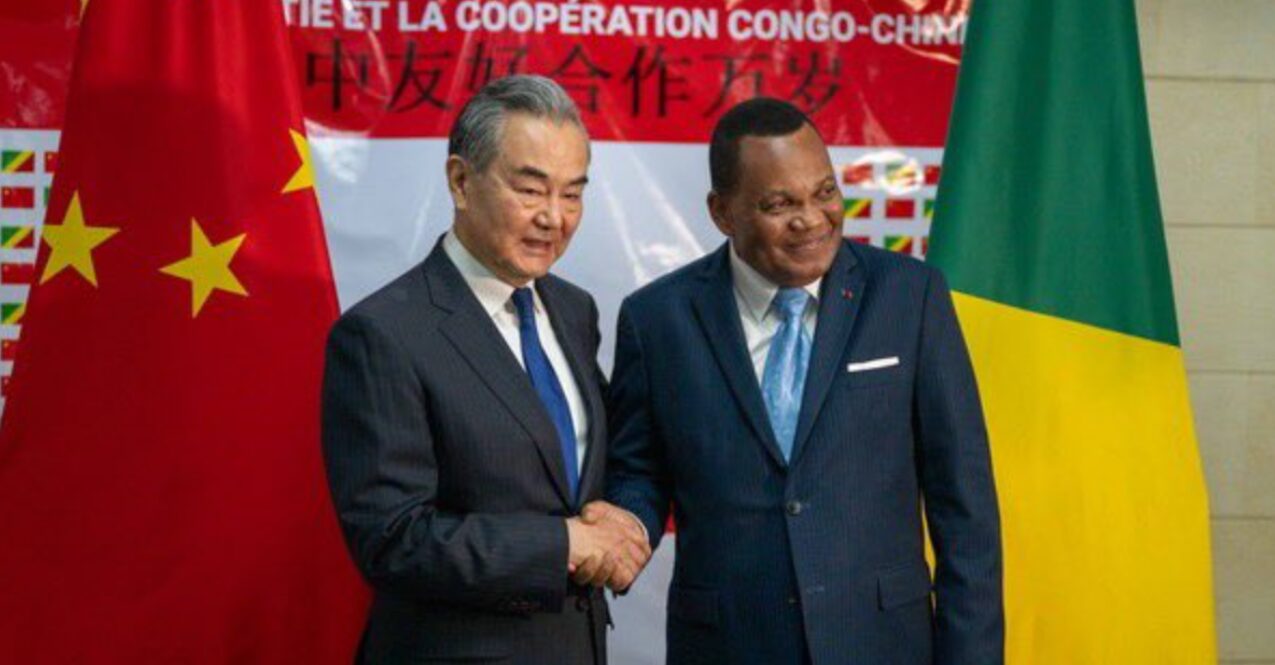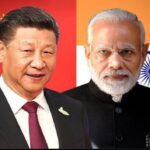Chinese Foreign Minister Wang Yi says the China-Africa cooperation will only grow stronger
Chinese Foreign Minister Wang Yi Says China-Africa Cooperation Will Only Grow Stronger
In recent years, the partnership between China and Africa has blossomed into one of the most dynamic and influential relationships in the global geopolitical landscape. According to Chinese Foreign Minister Wang Yi, this cooperation is only set to strengthen in the coming years, cementing the ties between the two regions as a cornerstone of global development. As China continues to expand its footprint across the African continent, both in terms of economic investments and diplomatic influence, the prospects for China-Africa collaboration appear brighter than ever before.
A Longstanding Partnership with a Bright Future
The relationship between China and Africa dates back several decades, marked by shared interests in economic development, trade, and infrastructure projects. Over the years, China has become one of Africa’s largest trading partners and a significant player in shaping the continent’s future. With its vast market, technological capabilities, and growing influence, China has provided Africa with opportunities to accelerate its economic growth, diversify industries, and improve infrastructure.
Foreign Minister Wang Yi’s statement underscores China’s commitment to deepening its ties with Africa, particularly in areas such as trade, investment, and development cooperation. He emphasized that the bond between the two regions is not only strong but also evolving, with new areas of collaboration emerging to address Africa’s diverse challenges.
China’s Growing Influence in Africa
In recent years, China has emerged as a key driver of Africa’s infrastructure development, with billions of dollars invested in projects ranging from roads, railways, and ports to energy, agriculture, and telecommunications. This massive infrastructure push has been facilitated through initiatives such as the Belt and Road Initiative (BRI), which aims to connect countries across Asia, Africa, and Europe through a network of trade and infrastructure.
Through the BRI, China has pledged to build and finance vital infrastructure projects across Africa, helping to bridge gaps in transportation and logistics, which have long hindered economic development on the continent. The partnerships formed under the BRI have brought tangible benefits to African nations, facilitating economic growth, job creation, and enhanced connectivity between countries. As a result, Africa has become a central focus of China’s foreign policy, reflecting both regions’ desire for a mutually beneficial relationship.
In addition to infrastructure, China has also become an essential partner in sectors such as technology, health, and education. Chinese companies have been instrumental in driving the digital transformation in Africa, particularly in the fields of e-commerce, mobile payments, and digital infrastructure. Chinese investments in health care have been crucial during the COVID-19 pandemic, providing medical supplies, vaccines, and other forms of support to African countries.
Wang Yi’s Vision for the Future of China-Africa Relations
Wang Yi’s statement reinforces the notion that the future of China-Africa relations is rooted in shared prosperity. He expressed confidence that both sides would continue to deepen their ties, with particular emphasis on areas like trade, people-to-people exchanges, and cooperation in multilateral organizations such as the United Nations and the African Union.
According to Wang, one of the key areas where China and Africa will strengthen their partnership is through enhanced trade ties. China has already established itself as Africa’s largest trading partner, and this relationship is poised to expand even further. Chinese exports to Africa include a wide range of goods, including machinery, electronics, textiles, and consumer products, while African exports to China largely consist of oil, minerals, agricultural products, and raw materials.
China has committed to increasing its imports from Africa as part of a broader effort to foster more balanced trade between the two regions. This trade will not only benefit China by ensuring a stable supply of critical resources but will also provide African countries with access to a vast and growing market. Additionally, Chinese investment in local businesses and industries in Africa will help to boost manufacturing capacity and create much-needed jobs.
Another pillar of this growing partnership is education. Wang Yi emphasized that education and talent exchange programs are critical to strengthening the relationship between China and Africa. China has been involved in a number of educational initiatives, including scholarships for African students to study in China, educational partnerships between universities, and the establishment of Confucius Institutes across the continent to promote Chinese language and culture. By fostering a deeper understanding between the people of both regions, these initiatives aim to build long-term relationships and enhance collaboration on a people-to-people level.
Emphasizing Sustainable Development
Sustainability has also become a key focus of China-Africa cooperation. As Africa continues to grow and industrialize, it faces significant challenges related to environmental sustainability, such as climate change, natural resource management, and pollution. China has made it a priority to work with African nations to address these challenges through green development initiatives, renewable energy projects, and the promotion of sustainable practices.
Wang Yi underscored that China’s support for Africa’s sustainable development will be a central theme moving forward. From large-scale solar energy projects to forest preservation efforts, China is committed to providing both financial and technological support to help Africa achieve its environmental and climate goals. This cooperation is particularly important given the global push for carbon neutrality and the need for developing nations to embrace sustainable growth models.
The Strategic Importance of China-Africa Ties
The strategic importance of the China-Africa partnership cannot be overstated. In addition to economic cooperation, both regions share a common interest in shaping a more multipolar world order, free from the dominance of a single superpower. Africa, with its vast natural resources and young population, represents a key player in the future of global trade, and China recognizes the continent’s importance in its long-term global strategy.
By strengthening its ties with Africa, China is positioning itself as a champion of the developing world, emphasizing South-South cooperation and advocating for the interests of emerging economies on the international stage. The Africa-China relationship is increasingly seen as a model of cooperation that prioritizes mutual benefit, respect, and support for sustainable development.
Challenges and Opportunities
Despite the optimistic outlook for China-Africa cooperation, challenges remain. Concerns have been raised about the growing debt burden faced by African countries as a result of Chinese loans for infrastructure projects. Some critics argue that these debts may limit Africa’s economic sovereignty and lead to long-term financial difficulties.
However, both China and African nations have taken steps to address these concerns, with China offering debt relief initiatives and emphasizing the importance of mutual responsibility in sustainable financing. Going forward, it will be important for both parties to strike a balance between economic development and financial sustainability to ensure the long-term success of their partnership.
In Conclusion
Chinese Foreign Minister Wang Yi’s statement highlights the ongoing evolution of the China-Africa partnership, underscoring the importance of continued cooperation between the two regions. As China and Africa work together to tackle common challenges and seize new opportunities, their relationship will likely become an even more powerful force on the global stage.
With growing trade, investment, educational exchanges, and sustainable development initiatives, China-Africa cooperation is poised to become one of the most influential partnerships of the 21st century. As the world continues to navigate complex geopolitical dynamics, the strong ties between China and Africa will play a crucial role in shaping the future of both regions and the global economy.

















Post Comment